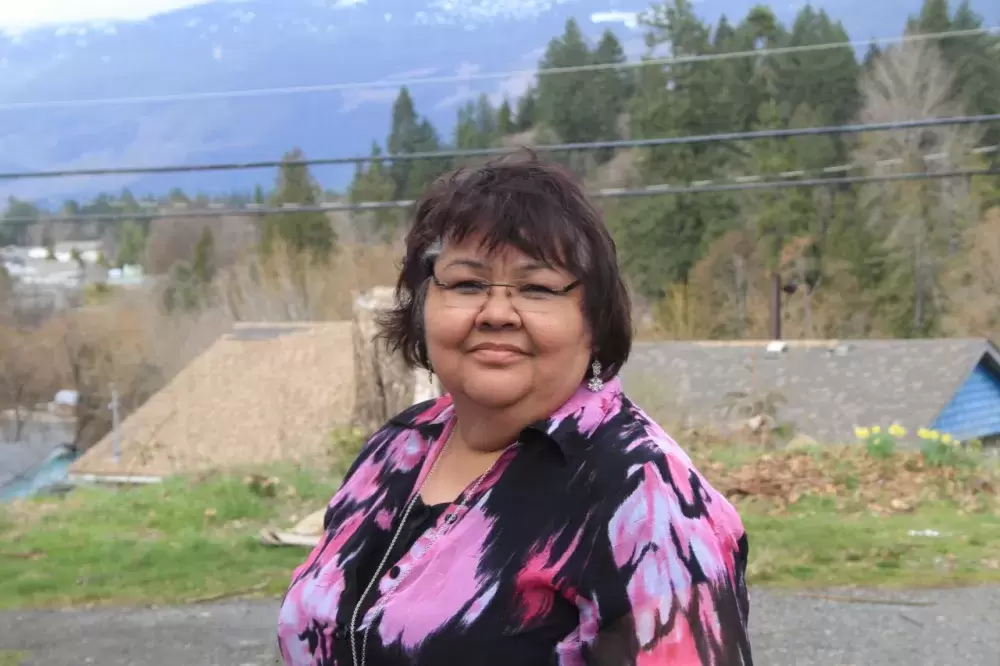Doreen Little is feeling the effects of a traffic violation a decade after the charges were laid when she represented herself in court.
The incident occurred in October 2007, when Little was pulled over in Port Alberni at Stamp Avenue and Roger Street. It was at about 3 o’clock in the morning when Little, who lived west of the Tseshaht Market at the time, had just picked up her younger son after he visited his older brother in Port Alberni, she said. Little recalls panicking when a police car followed her after she passed through a yellow light at the intersection. She pulled over in the parking lot of the Best Western Barclay Hotel.
“He gave me a breathalyzer right on the spot, I couldn’t do it,” said Little, who has asthma and remembers dealing with a chest infection at the time. “I didn’t have the lung capacity to do it.”
The breathalyser registered no reading, so the police drove Little’s son home while she was taken to the RCMP station. She was fingerprinted and photographed, but the station’s breathalyser still wouldn’t work, said Little.
“I did that three times and they still couldn’t get a reading because I didn’t have the lung capacity,” she said. “I didn’t realise that a blood test was an option. They didn’t make that known to me, nor did they offer it.”
Little was issued a ticket for impaired driving and failing to provide a breath sample. When she went to court within three months the impaired charges were dropped due to the lack of evidence, but the breathalyser issue remains on her driving record to this day, said Little.
“They charged me with failure to provide a breathalyser, fined me $600 and took my licence,” she said, adding that although she wasn’t intoxicated, the fine came with an order for rehab in Nanaimo. “They wanted me to do this rehab course, which costs between $900 and $1,000. Now, at the time I was on disability and could not afford that.”
As an independent esthetician and hairdresser with equipment that includes a hydraulic chair, working without a driver’s licence is a challenge for Little.
“I’m trying to make a living as best as I can,” she said.
She represented herself in court, and looks back on the legal process with frustration.
“I had no funds for a lawyer,” she said. “I went right downstairs as soon as I got out of the court and I asked, ‘What can I do to appeal? What would happen?’ They said I would go to supreme court. Then I just dropped it because I had a hard enough time in court by myself.”
Little’s struggles in navigating the court system are not unique, particularly among First Nations peoples. In a recent document the Legal Services Society cited improving Indigenous Peoples’ “access to justice” among its key strategies for the next year. The legal aid society’s most recent annual report noted that approximately 30 per cent of its clients are Aboriginal. The LSS also noted that those with a low income are more likely to face court troubles.
“Clients’ legal problems often arise from or lead to other problems such as health, housing, and debt issues,” stated the society’s annual report. “By working with other service providers to help clients get support for these issues, LSS can improve client outcomes as well as reduce clients’ use of justice, health, and social services over the long term.”
For those with First Nations, Metis or Inuit descent, help is available through the Native Courtworker and Counselling Association of B.C. To assist those who are in conflict with the law, the association regularly visits courts to help navigate people through the legal process. Clients are encouraged to read their police report before appearing in front of a judge, given a list of lawyers in the area and directed to legal aid services if they are eligible. The association’s workers are normally available in the Port Alberni, Ucluelet and Tofino law courts on days that charges are heard.
“If you decide to plead guilty, we can speak on your behalf. If you decide to plead not guilty we can support you in the trial process,” stated the association’s public material.
As Little’s case illustrates, the alternative of self-representation in court can lead to future difficulties.
“I had a clean driving record, why didn’t they just give me a warning?” she said. “I did nothing wrong to deserve this.”
The Native Courtworkers and Counselling Association of B.C. can be reached at 1-877-811-1190, and the Legal Services Society can be contacted at 1-866-577-2525.







